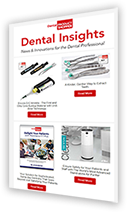 Although not a substitute for proper brushing and flossing, rinses are part of a well-rounded oral hygiene routine and offer several benefits:
Although not a substitute for proper brushing and flossing, rinses are part of a well-rounded oral hygiene routine and offer several benefits:
Reduction of plaque and bacteria: Antimicrobial agents like chlorhexidine or essential oils can help reduce the buildup of plaque and bacteria, which can help prevent gum disease, cavities, and bad breath.
Prevention of gingivitis and periodontal disease: Antibacterial mouthwash can reduce harmful bacteria, and prevent the progression of gingivitis to more severe periodontal disease.
Promotion of healing: Some rinses contain healing agents such as fluoride, which can aid in the recovery process and reduce the risk of post-operative infections.
Neutralization of acids: Acidic foods and drinks can erode tooth enamel, making teeth more susceptible to cavities. Fluoride can neutralize these acids and remineralize enamel, strengthening teeth and preventing decay.
Freshens breath: Mouthwashes can mask bad breath temporarily which can be especially beneficial for those with halitosis.
Reach difficult areas: Rinsing reaches areas in the mouth that toothbrushes and floss cannot easily access, and can eliminate bacteria in the back of the tongue, cheeks, and tonsils.



